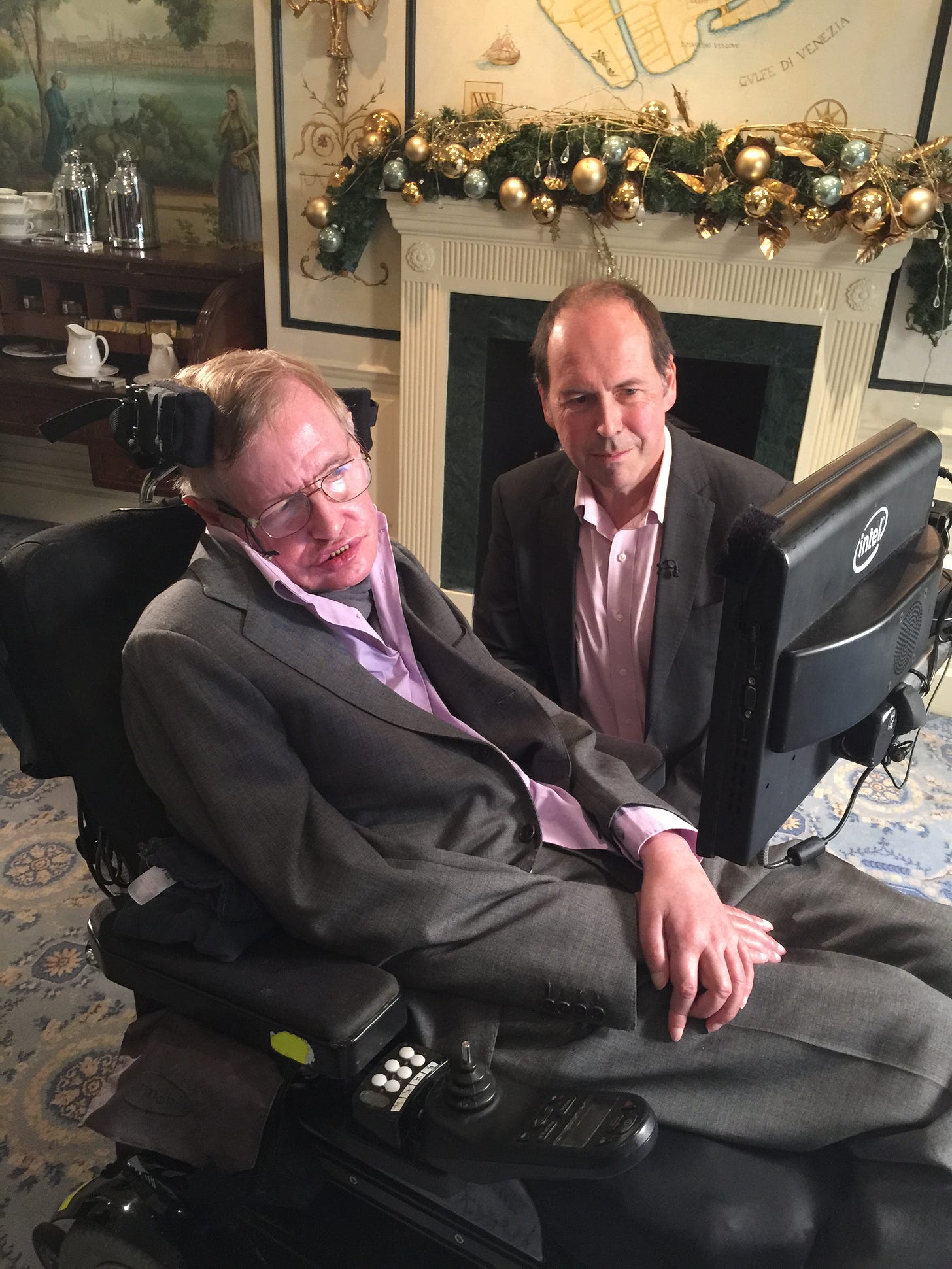When Hassabis met Hawking...
A great interview on the Today Programme this morning with Demis Hassabis about the extraordinary breakthrough DeepMind has achieved in predicting the structures of proteins reminded me of an episode in the Always On chapter about AI.
Justin Webb, after making clear what an amazing achievement AlphaFold 2 is, went on to explore the unease some people feel about advances in AI, especially when they come from a powerful American tech giant like Google.
One thing that triggered the global debate about the potential dangers of artificial intelligence was my 2014 interview with Stephen Hawking when he warned that the development of full AI could mean the end of the human race. That exasperated some of the scientists working in this field who felt that Professor Hawking, whatever his achievements as a physicist, was not qualified to comment on AI in such a dramatic fashion.
But in an interview for the book Demis Hassabis revealed that, rather than just grumbling, he had done something about it. Here’s an extract:
I asked the DeepMind founder whether he had been exasperated by that pronouncement. He revealed that a few months later he had met Professor Hawking at his home in Cambridge.
“He invited me up – actually we were supposed to spend an hour together, we ended up spending four or five hours. I remember his nurses coming in and trying to pull him out and getting his lunch and he was sort of saying no, I want to carry on talking.”
The physicist, perhaps aware that this was an area of science where his visitor had far greater expertise, let him do most of the talking. ‘He was really fascinated. He asked me a lot of probing questions about what we were building, what we were trying to do. And by the end of it he was very much more reassured.’
A couple of years after his doom-laden interview, and after that meeting with Demis Hassabis, Stephen Hawking made another intervention into the debate about AI. Speaking in Cambridge at an event marking the opening of the Centre for the Study of Intelligence, he gave an overview of where we had got to so far. He talked of the potential of the technology to eradicate disease and poverty, and combat climate change, while warning again of the danger of machines developing a will of their own, in conflict with humanity. But, he concluded, ‘In short, the rise of powerful AI will be either the best, or the worst thing, ever to happen to humanity. We do not yet know which.’ Hearing this speech, Demis Hassabis decided his meeting had made an impact. At least the great scientist was now open to the possibility that the AI adventure would not end in disaster.
There are all sorts of difficult questions about AI - who controls it, what kind of biases are built into algorithms, should we give autonomous weapons the ability to choose targets on the battlefield? But these are urgent issues for here and now rather than Hawking’s nightmarish visions of smart machines making us obsolete.
And as Demis Hassabis has shown with the AlphaFold project we need to put the great benefits the technology can bring humanity on the scales too in judging AI.
Always On is available as a hardback, ebook or audiobook here.
And if you want to support your local independent book shop you can order it at Hive.




